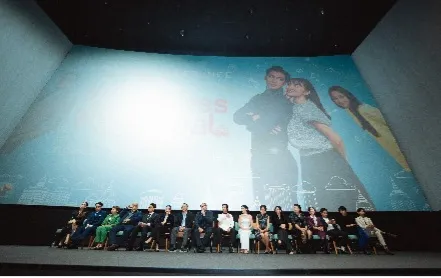We’ve all witnessed it: one careless comment spirals into an internet frenzy. Recently, Abdizar found himself at the center of such a storm after admitting he hadn’t read the original webtoon before starring in Business Proposal. Surprisingly, he’s not the first actor to skip source material, yet the backlash was swift and fierce. So, what made netizens react so strongly, and could this affect his career long-term? Let’s unpack this from a neuroscience perspective.
Emotions and Memories: A Brainy Duo
Our brains store memories in a region called the hippocampus, nestled right next to the amygdala—the emotional epicenter. This proximity explains why emotionally charged events stick with us more vividly than mundane ones. When Abdizar casually dismissed the source material, it didn’t just register as information; it triggered emotions. Whether it was disappointment, frustration, or perceived disrespect, these feelings anchored the memory firmly in people’s minds.
Negativity Bias: Why Bad News Travels Fast
Humans have a cognitive quirk called negativity bias, making us naturally more sensitive to negative information. This bias explains why celebrity scandals dominate headlines more than their achievements. Abdizar’s comment wasn’t just a neutral statement—it tapped into this bias, becoming an easy target for widespread attention and criticism.
Memory Reconstruction: The Game of Broken Telephone
Interestingly, we don’t recall events like a replay button. Instead, our brains reconstruct memories based on fragments of information. Ask ten people what Abdizar said, and you’ll get ten slightly different versions. Over time, we forget exact words but remember emotionally charged highlights, like, “… probably won’t even be invited to the premiere!” This selective memory fuels the longevity of viral blunders.
The Weight of First Impressions
For long-time fans who know Abdizar’s positive traits, this incident might be a mere blip. Their existing memories assimilate the new information without drastically altering their perception. However, for those unfamiliar with him beyond being the son of the late Ustadz Jefri, this blunder forms the foundation of their impression. And first impressions, especially negative ones, are hard to shake.
Can a Damaged Reputation Be Repaired?
Here’s where neuroscience offers both sobering and hopeful news. Our brain’s memory storage—built through neural networks—doesn’t simply overwrite old data. New information either assimilates (fits into existing memories) or leads to accommodation (adjusts old memories to include the new). But it never erases.
So, what’s the path to redemption? The answer isn’t rebranding overnight. It’s more like hitting a ‘restart.’ No, not a literal life reset, but a strategic pause. Taking a step back allows public sentiment to cool, as memories fade over time. Emotional wounds have an expiration date. When the dust settles, that’s the moment to re-emerge, wiser and more intentional.
The Takeaway
This isn’t just about Abdizar. It’s a lesson for anyone who’s faced public missteps. Our brains aren’t wired to forget easily, especially when emotions are involved. But time, humility, and genuine growth can rebuild even the most fragile reputations. The key? Make sure the next chapter leaves a better impression than the last.
Kredit gambar: Media Indonesia



